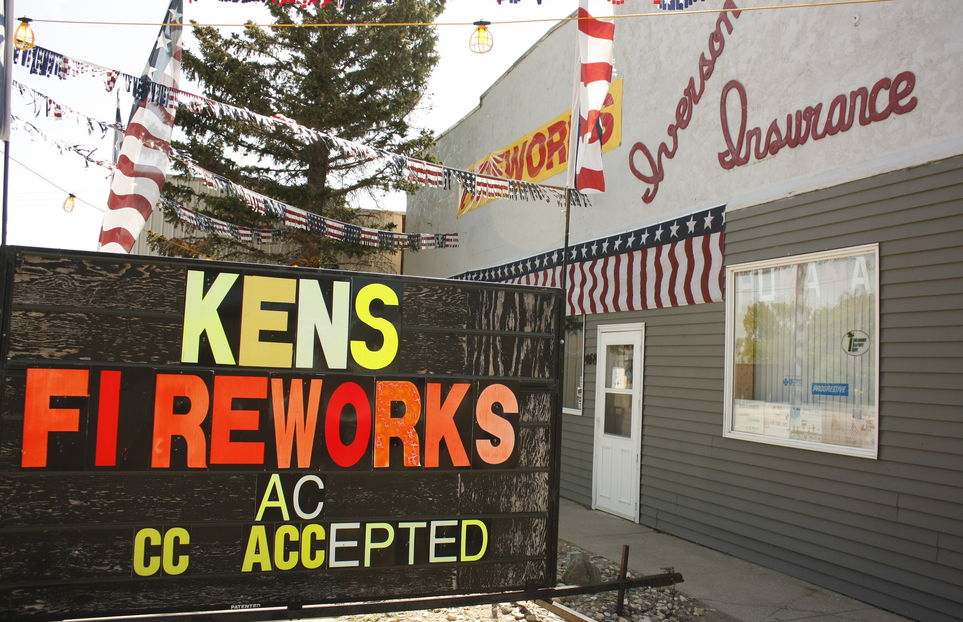Which Fireworks, If Any, Are Legal In My State?

Get your fireworks and your insurance at this one-stop shop in South Dakota (Photo: Great Beyond)
My story might have been different if, instead of Pennsylvania — where “ground and hand-held sparkling devices… novelties… and toy caps” are all that’s allowed without a permit — I’d been raised in Montana, where the only fireworks specifically forbidden are skyrockets, roman candles, and bottle rockets.
Each state has different — and often incredibly specific — rules governing which fireworks you can buy, along with where and when you can set them off.
Thankfully, there’s the American Pyrotechnics Association, which has the handy state-by-state guide to fireworks ordinances that we always check out this time of year.
For example, in Nebraska, you can buy sparklers — but only gold and silver — spray fountains, torches, color fire cones, star and comet type aerial shells without explosive charge, lady fingers (that don’t exceed ⅞” in length and ⅛” in diameter and with a total pyrotechnic composition that doesn’t exceed 50 mg. each), color wheels and any other item approved by Fire Marshal.
But Nebraskans have tight window within which to buy these items legally: June 25-July 4. In Lincoln, NE, that time period is only two days long and Omaha residents are out of luck because fireworks are prohibited there.
Similarly, while Montana puts few restrictions on the kinds of fireworks you can buy, the actual fireworks can only be sold in the state between June 24 and July 5 or between December 29 and December 31.
There are four states — Delaware, Massachusetts, New Jersey, and New York — where no consumer-grade fireworks are allowed.
Another four states — Illinois, Iowa, Ohio, and Vermont — that are basically sparkler-only, though you’ll want to look at the particular rules for your state.
States like Montana, Maine, Texas, and others that only prohibit a small number of specific fireworks products do of course require residents to observe federal regulations as set by the Consumer Product Safety Commission.
The Code of Federal Regulations, Title 16 spells out two very specific fireworks bans.
Part 1500.17(a)(3) prohibits:
“Fireworks devices intended to produce audible effects (including but not limited to cherry bombs, M-80 salutes, silver salutes, and other large firecrackers, aerial bombs, and other fireworks designed to produce audible effects, and including kits and components intended to produce such fireworks) if the audible effect is produced by a charge of more than 2 grains of pyrotechnic composition.”
While (a)(8) bans:
“Firecrackers designed to produce audible effects, if the audible effect is produced by a charge of more than 50 milligrams (.772 grains) of pyrotechnic composition (not including firecrackers included as components of a rocket), aerial bombs, and devices that may be confused with candy or other foods, such as ‘dragon eggs,’ and ‘cracker balls’ (also known as ‘ball-type caps’), and including kits and components intended to produce such fireworks.”
Whatever you light off this weekend, don’t do it stupidly. Fireworks are awesome. Fireworks in the eye are not.
Want more consumer news? Visit our parent organization, Consumer Reports, for the latest on scams, recalls, and other consumer issues.

